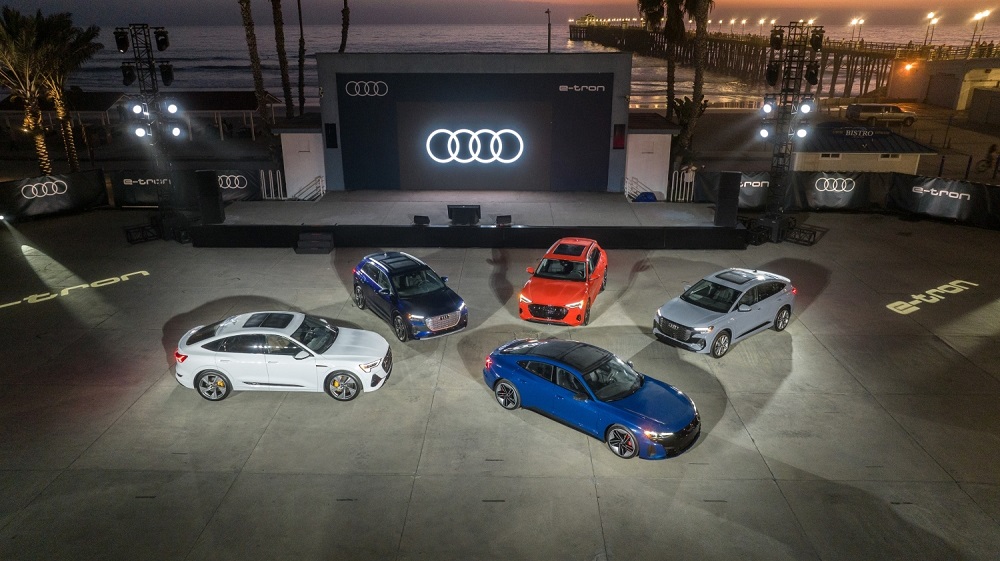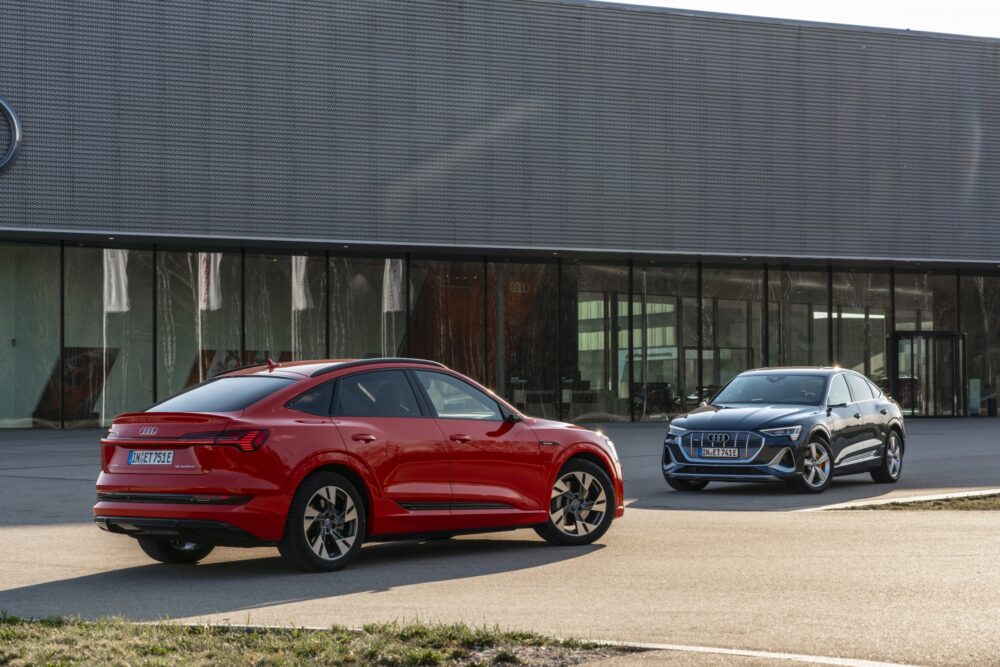Is Audi Making the Right Choice by Going All-Electric Now?
Following a hot start, EVs are now facing some challenges, which makes the current Audi strategy seem a bit ambitious.
In a move that surprised, well, not a whole lot of people in today’s world, Audi launched its first all-electric vehicle in the U.S. back in 2019, and at the same time, committed itself to the Paris 2050 Climate Award. The e-tron family has since expanded to include multiple models, and Audi’s electric ambitions are essentially set in stone. The brand plans to convert one-third of its American lineup to electrified vehicles by 2025, stop launching new ICE vehicles by 2026, and completely phase out ICE models by 2033.
However, there are signs that given today’s climate, perhaps this goal is a bit too ambitious.
For starters, we must consider the financial side of the equation. Developing new vehicles is an expensive and time-consuming process as-is, but then we must factor in the high cost of EV battery raw materials, coupled with their relative scarcity as opposed to demand from automakers right now. Not only is this making EVs an expensive proposition for customers – at least for now, until we begin mining in various other parts of the world – but it’s taking its toll on automakers, too.
Just a few weeks ago, Volkswagen CEO Thomas Schäfer told his management team that the company’s finances are “on fire,” which is about as alarming as it sounds. Turns out, the automaker’s massive investment in EVs is playing a rather large role in the need to slash $11 billion in costs, as well as its inability to compete in the vast Chinese market, where all-electric vehicles are prevalent and a price war has erupted between brands. This news also came on the heels of Audi CEO Markus Duesmann‘s ouster from the company, a decision made as VW brass were dissatisfied with Audi’s inability to keep pace with rivals like BMW and Mercedes-Benz in terms of its electric transition
Meanwhile, a price war of sorts has erupted in the U.S. as well, with Ford and Tesla recently slashing the prices of their EVs by a significant amount in an effort to remain competitive. Problem is – at least for Ford – this is preventing them from getting out of the red. During the company’s Q2 earnings call, CEO Jim Farley revealed that it lost $1.08 billion in its Model e EV division in the second quarter, and also wrote off $32k, on average, on every electric vehicle it sold during that time period.
Then there’s the matter of supply and demand – early adopters were scrambling to purchase EVs at first, which only drove prices even higher. Now that supply chain issues have eased and automakers have ramped up production of those models, inventory is growing at a rapid pace. According to Cox Automotive, days’ supply for the entire U.S. new vehicle market stood at 53 as of the end of June, which is 39 percent higher than a year ago. However, the supply of new EVs was considerably higher – 103 days, which is pretty alarming.
Finally, we can look to some recent comments from Audi’s global head of marketing and sales, Hildegard Wortmann, who told Automotive News that the brand needs to focus on the way it markets EVs and the edutainment systems present in those vehicles – as well as their viability as living spaces – to boost consumer confidence in those models. “There is nothing to be afraid of,” she said. “It’s natural that you need to get acquainted with it, and there are a lot of things in an electric car that you need to be aware of.” Not exactly a ringing endorsement.
We say all of this to set up the important question – is Audi making the right choice by devoting itself to an all-electric future this soon? For some time, it certainly seemed that way, as consumers appeared hungry to switch amid high gas prices and early hype surrounding multiple models. However, now that the early adopters have purchased their EVs, it seems as if the rest of the U.S. needs a little more convincing, and there are a lot of obstacles to overcome in that regard.
There are several ways Audi can survive this lull and still be successful. For starters, it – and other automakers – must find a way to make battery technology a bit more viable, improving range and slashing charge times to take the inconveniences out for those that like to travel long distances or take road trips, even infrequently. Secondly, it has to find a way to reduce raw materials costs to the point where the price of EVs is on par with their ICE counterparts.
Even then, there are plenty of folks hesitant to buy an EV for any number of other reasons, and in this uncertain economic environment, it’s impossible to predict if or when automakers can drive costs down – after all, opening new mining operations across the globe is no quick or easy task. And while 2033 seems like the distant future at this point, in reality, it’s oftentimes impossible to predict what will happen – meaning that personally, we believe Audi should have some sort of backup plan in place in the event that its massive bet on electrification doesn’t pan out as expected.
Photos: Audi





